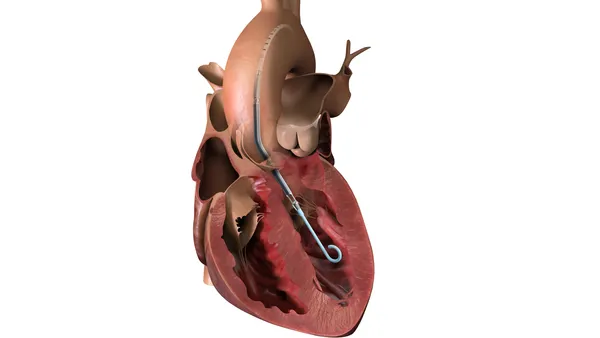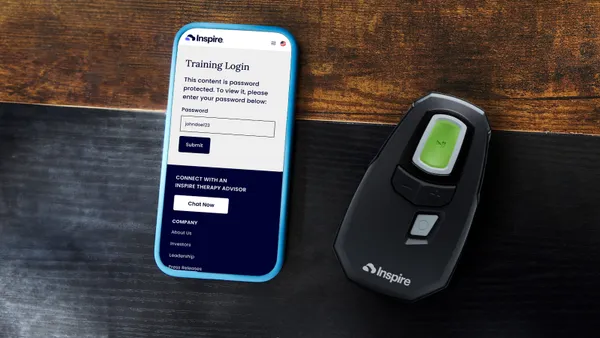Medtech executives discussed planned changes to how the Centers for Medicare and Medicaid Services could pay for diabetes technology in earnings calls this week. Insulin pump makers Insulet and Tandem Diabetes Care don’t expect much of an impact on their business from the proposed changes, but said they would be monitoring the policy.
In June, CMS issued a proposed rule that would seek to include insulin pumps and continuous glucose monitors in a competitive bidding program. The rule would also change payments to a monthly rental schedule instead of a contract where the devices are paid for upfront.
RBC Capital Markets analyst Shagun Singh expects Tandem and Medtronic to be impacted the most, “as the new proposal would allow for competitive switching,” she wrote in a July 1 research note. Singh expects Insulet to see less of an impact as the company already uses a “pay-as-you-go” model, and Dexcom’s and Abbott’s CGMs are already sold on a monthly bundle basis.
Tandem CFO Leigh Vosseller said on an earnings call Wednesday that the company does not expect the changes to have a material impact on the company’s business, and “we anticipate it could help drive more people to pump therapy.”
Currently, traditional Medicare makes up less than 10% of Tandem’s sales. Vosseller said the payment change would shift pump reimbursement from a 13-month rental to a pay-as-you-go model. Tandem, which currently sells most of its pumps through a durable medical equipment model, plans to begin selling supplies for its t:slim X2 pump through the pharmacy channel starting in the fourth quarter.
“Transitioning to a pay-as-you-go model is something that we've contemplated anyway from a commercial perspective as we've pursued the pharmacy channel,” Vosseller said.
She added that Tandem will be participating in the comment period and anticipates final rulings in November.
Tandem lowered its earnings forecast for U.S. sales in 2025 to $700 million for the year, down from a previous range of $725 million to $730 million. CEO John Sheridan said the change was due to a new market entrant that has built a larger-than-expected sales team, and initiatives that are still in progress to modernize Tandem’s systems and grow its salesforce.
The company also disclosed a recall related to a speaker problem with its devices, which has been associated with 59 injuries.
Tandem’s stock price was down roughly 20% to $11.52 at market close Thursday.
Insulet, Dexcom expect little impact
Insulet expects little impact from the CMS changes. CEO Ashley McEvoy told investors Thursday that the company’s devices are already sold on a pay-as-you-go basis, as the company does almost all of its sales through the pharmacy channel. Insulet’s patch pumps are covered under Medicare Part D, which covers prescription drugs, and McEvoy doesn’t think they will be eligible for competitive bidding under Part B, which covers durable medical equipment.
“We are going to continue to engage with CMS to really talk about the benefits of our differentiated Omnipod 5 technology and how we improve care for people with diabetes,” McEvoy said.
Insulet raised its sales expectations for 2025, now anticipating growth of 24% to 27%, from a previous range of 19% to 22%
Dexcom Chief Operating Officer Jake Leach also addressed the CMS competitive bidding proposal, saying about 15% of the company’s business is fee-for-service Medicare. Leach, who will become CEO of Dexcom in January, said on an earnings call in July that “we feel very comfortable about the value that we bring for the price of our product.” He added that Dexcom also wants to ensure there’s not an interruption to care for people on Medicare as has happened in previous versions of competitive bidding.
CFO Jereme Sylvain said he expects the bidding process to start no earlier than 2027, based on historical precedent.













